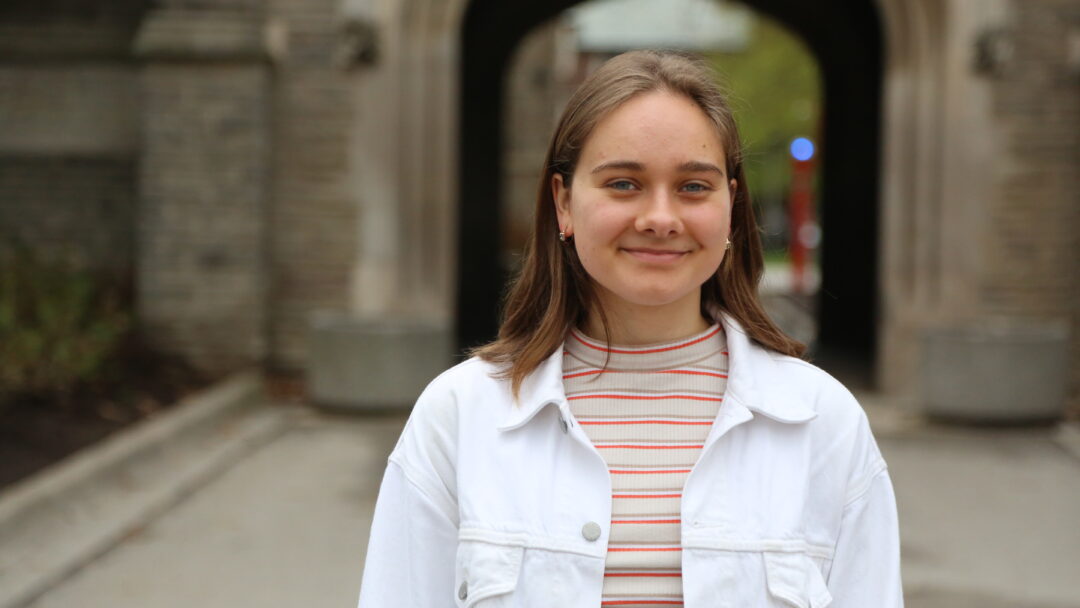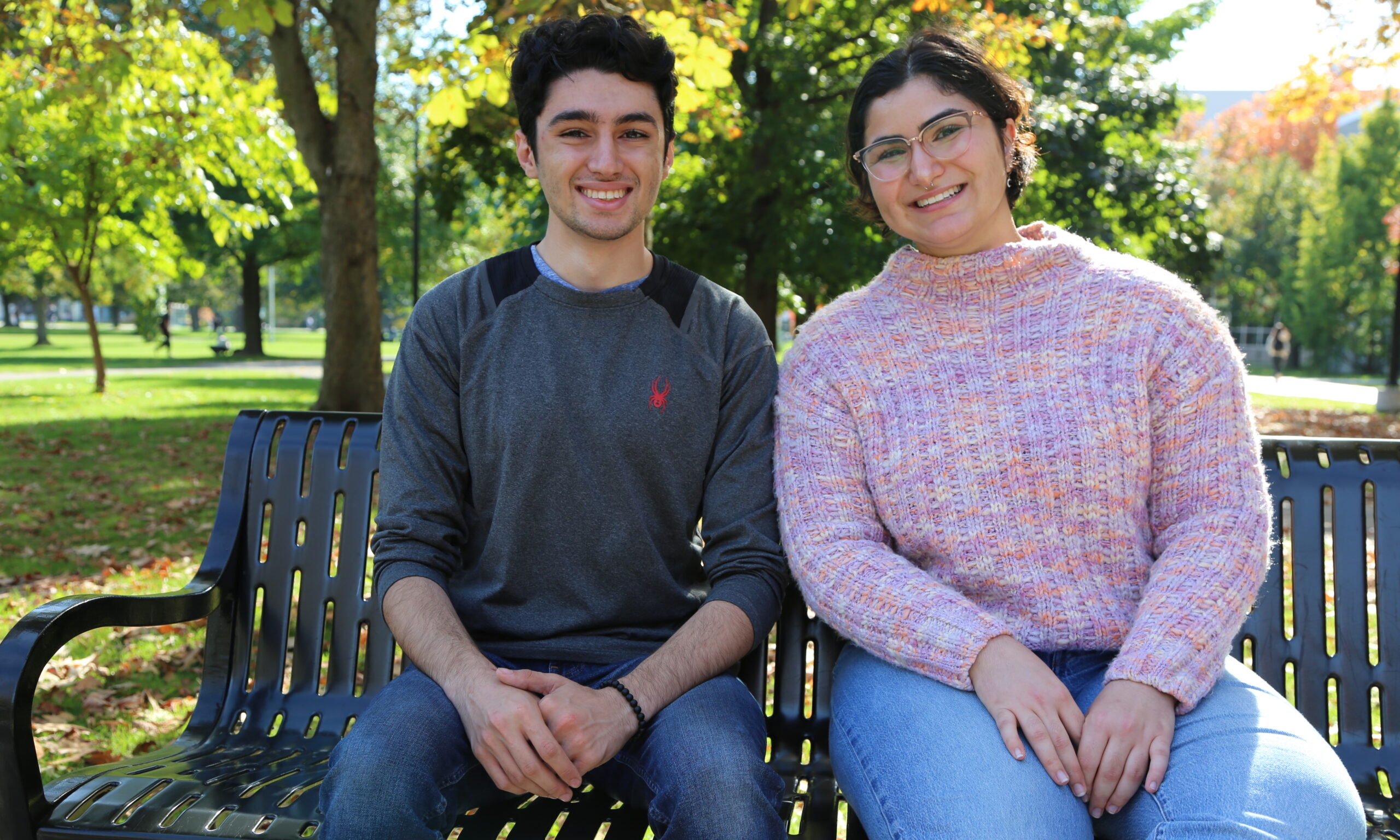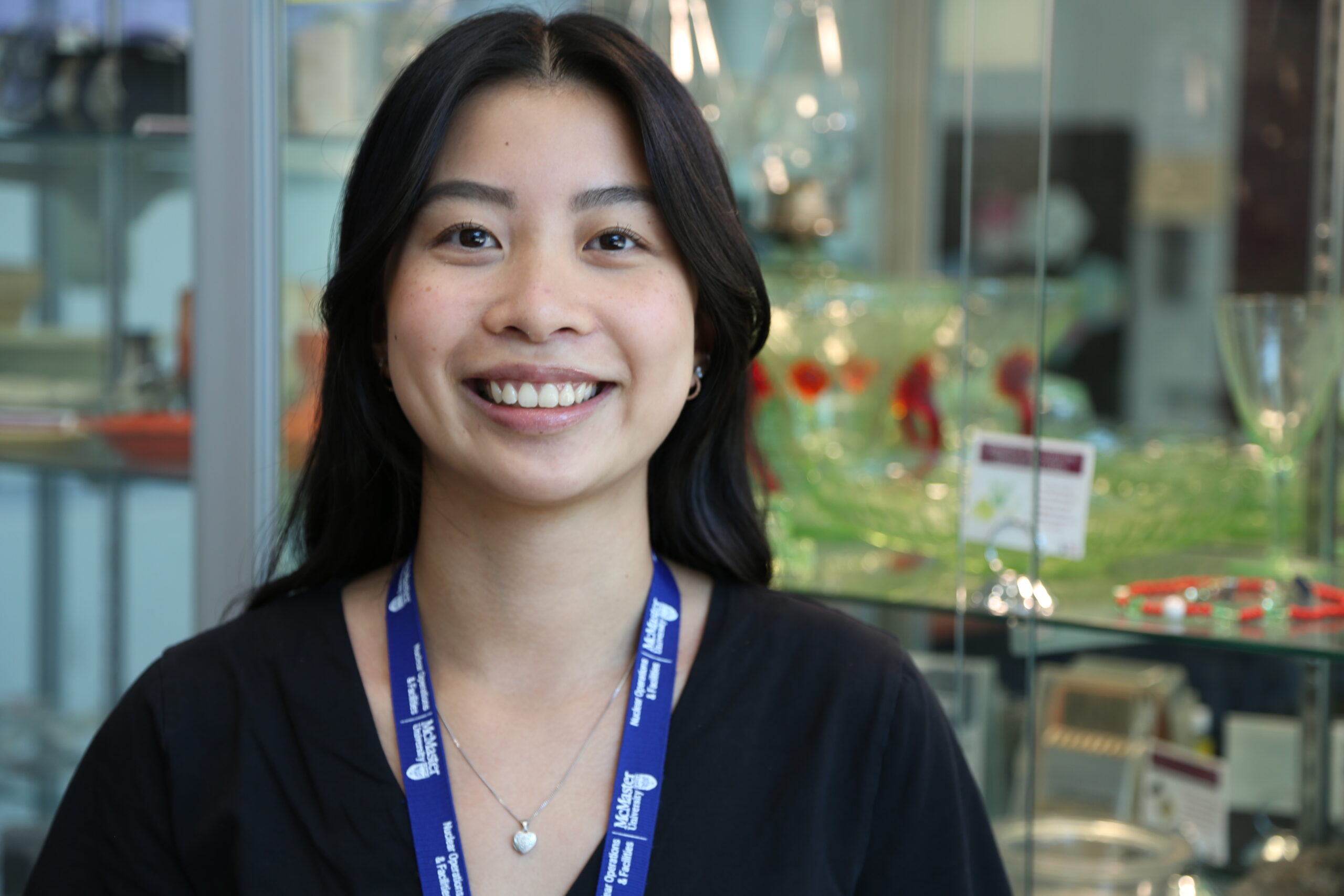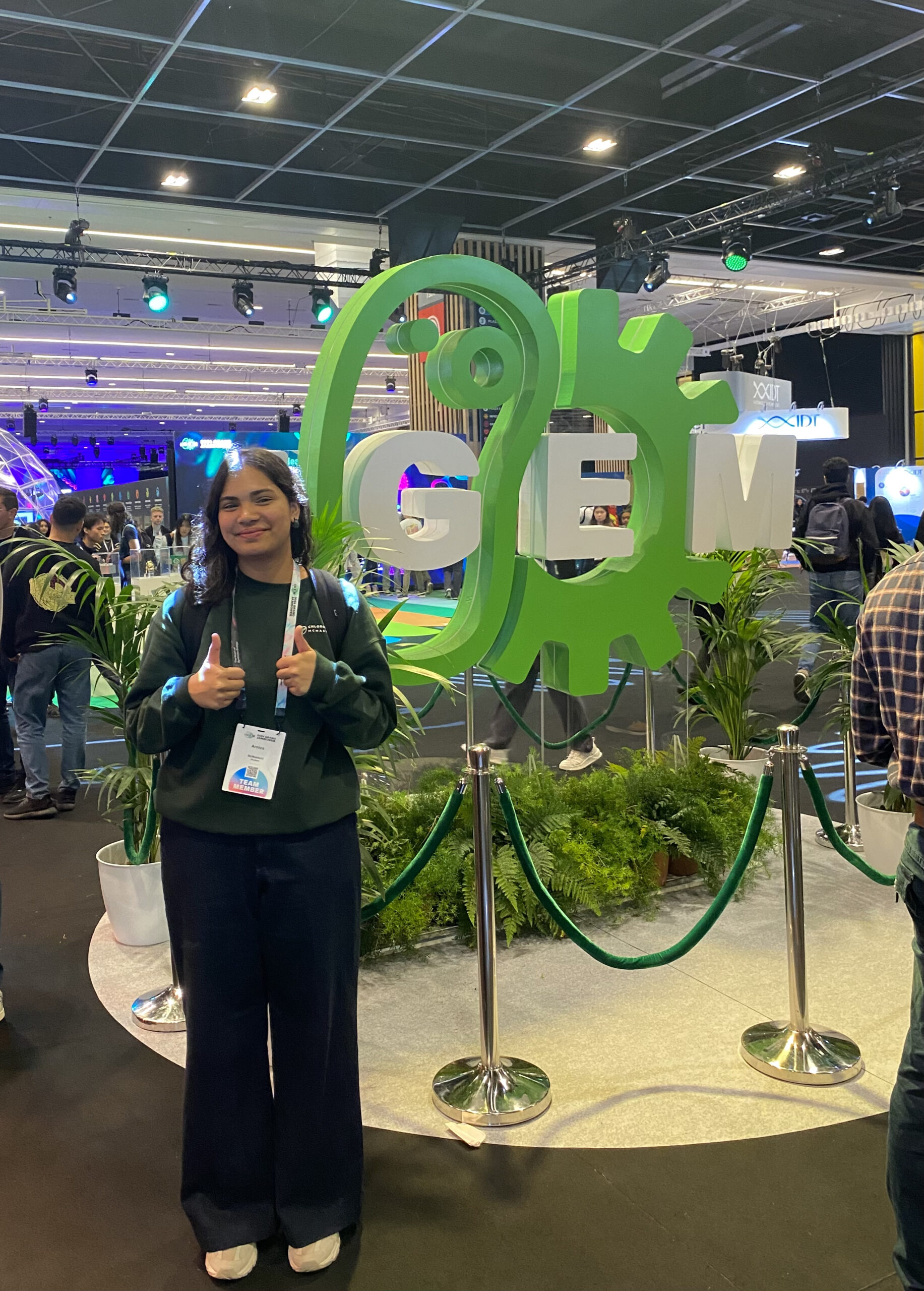Science students apply research skills to City of Hamilton projects

Time was on Emily Cudny’s side and it was tripping her up.
The Human Behavior student was working with classmate Anne Guerrero on a literature review project for the City of Hamilton. They had three months to get it done: Emily would’ve preferred three weeks.
“We had so much time to question and second-guess ourselves,” says Emily. They kept discovering research papers that would shift the focus of their project. “It was pretty stressful at the start.”
The project accounted for the majority of their final grade which added to the pressure. “I made a mental note to work hard and do really well. This project needed to be as good as it could possibly make it.” And halfway through the term, they found out the project was also a competition.
Emily and Anne were among the 190 students in a third-year applied psychology course taught by Mayu Nishimura. The assistant professor with the Department of Psychology, Neuroscience & Behavior teaches students how to use psychological principles and research to solve real-world problems.
The best way to teach the course? “Collaborate with a community partner who has a real problem that needs solving,” says Mayu.
CityLAB brokered a collaboration with the City of Hamilton. CityLAB’s an innovation hub that brings student, academic and civic leaders together to co-create a better Hamilton for all. Since 2017, nearly 3,500 students, 100 faculty members and 150 City staff have completed 222 CityLAB projects.
Students could choose between two projects: conduct a literature review to identify barriers to early years education for children with special needs or build a campaign to persuade more tweens and teens to take public transit.
The students split off into 60 teams. The projects had assignments due throughout the year, starting with annotated bibliographies followed by argument-mapping assignments and final written submissions.
Mayu and her four graduate teaching assistants compared notes and chose the top team for each project. The two teams then presented their work to City of Hamilton staff at a CityLAB showcase event earlier this month. Every team could also present their work in front of their classmates for a bonus mark.
Emily’s stress levels with the project started dropping thanks to Mayu’s weekly lectures. What they were learning in class tied directly back to their projects.
“I started reading research papers in the way Professor Nishimura taught us.” That made sifting and sorting through papers quicker and easier. Emily says they read more than 50 research papers, eventually citing 23 for the project.
Emily and Anne narrowed their focus to research on the parents’ experiences when accessing early years resources for their children with special needs. They discovered that barriers for parents include accessibility, affordability and work schedule conflicts, along with burnout, stress and shame. “The research showed that parents are under huge pressure to provide the best care for their children and they feel shame when they fall short.”
The duo took top spot on the early years education project while Arianna Alati, Vanessa Fonrose, Jesse Gonidis and Jessica Manuel finished first with the public transit project.
Jessica had a similar experience as Emily. “My skills in conducting research improved a lot which was something I didn’t expect going into the course. I knew I’d be doing research for this project but we ended up going in a very niche direction with our campaign. While that made the literature review for our project quite challenging, it made me better able to synthesize research.”
Acing the project and presenting at the CityLAB showcase were a great way to close out the course but Emily says it’s what she learned week after week that matters most.
“Professor Nishimura taught us how to think and do science and research the right way.”
She’s also learned not to waste time writing or trying to decipher unreadable research papers. “It’s important that a research paper sets out an argument and a storyline that’s easy to follow. If a paper doesn’t make sense, it’s not good research.”
Outreach, StudentsRelated News
News Listing

October 25, 2024

Student tour guides pull double duty as ambassadors for McMaster and the nuclear industry
Graduate students, Outreach
October 22, 2024

